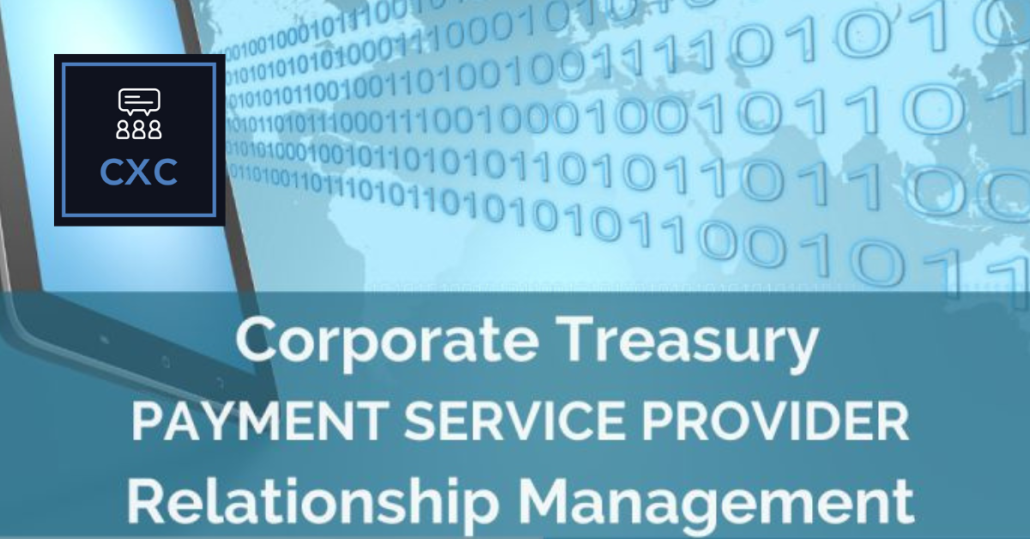Corporate Treasury Payment Service Provider Relationship Management
By ComplexCountries
02/11/2023
“May you live in interesting times” goes the old Chinese curse. Whether we are cursed or not, we are certainly living in interesting times.

Can’t get enough? Check out these latest items
 https://treasuryxl.com/wp-content/uploads/2026/02/Kantox-BLOGS-featured-1.png
200
200
treasuryXL
https://treasuryxl.com/wp-content/uploads/2018/07/treasuryXL-logo-300x56.png
treasuryXL2026-02-23 16:01:512026-02-23 16:05:49Kantox appoints Mathieu Lacour as its new Chief Executive Officer
https://treasuryxl.com/wp-content/uploads/2026/02/Kantox-BLOGS-featured-1.png
200
200
treasuryXL
https://treasuryxl.com/wp-content/uploads/2018/07/treasuryXL-logo-300x56.png
treasuryXL2026-02-23 16:01:512026-02-23 16:05:49Kantox appoints Mathieu Lacour as its new Chief Executive Officer https://treasuryxl.com/wp-content/uploads/2025/11/FinanceKey-Featured.png
200
200
treasuryXL
https://treasuryxl.com/wp-content/uploads/2018/07/treasuryXL-logo-300x56.png
treasuryXL2026-02-23 07:00:402026-02-23 10:24:50Real-time treasury data in Excel
https://treasuryxl.com/wp-content/uploads/2025/11/FinanceKey-Featured.png
200
200
treasuryXL
https://treasuryxl.com/wp-content/uploads/2018/07/treasuryXL-logo-300x56.png
treasuryXL2026-02-23 07:00:402026-02-23 10:24:50Real-time treasury data in Excel https://treasuryxl.com/wp-content/uploads/2024/01/Template_VACANCY-featured.png
200
200
treasuryXL
https://treasuryxl.com/wp-content/uploads/2018/07/treasuryXL-logo-300x56.png
treasuryXL2026-02-20 07:00:192026-02-19 13:09:43Vacancy Treasury Consultant – Brussels
https://treasuryxl.com/wp-content/uploads/2024/01/Template_VACANCY-featured.png
200
200
treasuryXL
https://treasuryxl.com/wp-content/uploads/2018/07/treasuryXL-logo-300x56.png
treasuryXL2026-02-20 07:00:192026-02-19 13:09:43Vacancy Treasury Consultant – Brussels https://treasuryxl.com/wp-content/uploads/2026/02/caceis-logo-200x200-2.png
200
200
treasuryXL
https://treasuryxl.com/wp-content/uploads/2018/07/treasuryXL-logo-300x56.png
treasuryXL2026-02-19 11:20:292026-02-19 11:30:38STAGE – OTC Derivatives Collateral Officer H/F @ CACEIS
https://treasuryxl.com/wp-content/uploads/2026/02/caceis-logo-200x200-2.png
200
200
treasuryXL
https://treasuryxl.com/wp-content/uploads/2018/07/treasuryXL-logo-300x56.png
treasuryXL2026-02-19 11:20:292026-02-19 11:30:38STAGE – OTC Derivatives Collateral Officer H/F @ CACEIS https://treasuryxl.com/wp-content/uploads/2017/10/Adidas.png
200
200
treasuryXL
https://treasuryxl.com/wp-content/uploads/2018/07/treasuryXL-logo-300x56.png
treasuryXL2026-02-19 11:12:362026-02-19 11:23:14INTERNSHIP – FINANCE, TREASURY or AUDIT @ adidas
https://treasuryxl.com/wp-content/uploads/2017/10/Adidas.png
200
200
treasuryXL
https://treasuryxl.com/wp-content/uploads/2018/07/treasuryXL-logo-300x56.png
treasuryXL2026-02-19 11:12:362026-02-19 11:23:14INTERNSHIP – FINANCE, TREASURY or AUDIT @ adidas https://treasuryxl.com/wp-content/uploads/2026/02/Lufthansa-Logo-200x200-1.png
200
200
treasuryXL
https://treasuryxl.com/wp-content/uploads/2018/07/treasuryXL-logo-300x56.png
treasuryXL2026-02-19 10:54:222026-02-19 11:25:05Internship Treasury Operations @ Lufthansa
https://treasuryxl.com/wp-content/uploads/2026/02/Lufthansa-Logo-200x200-1.png
200
200
treasuryXL
https://treasuryxl.com/wp-content/uploads/2018/07/treasuryXL-logo-300x56.png
treasuryXL2026-02-19 10:54:222026-02-19 11:25:05Internship Treasury Operations @ Lufthansa https://treasuryxl.com/wp-content/uploads/2025/06/Medline.png
200
200
treasuryXL
https://treasuryxl.com/wp-content/uploads/2018/07/treasuryXL-logo-300x56.png
treasuryXL2026-02-19 10:42:432026-02-19 10:55:15Treasury and Finance Intern @ Medline Europe
https://treasuryxl.com/wp-content/uploads/2025/06/Medline.png
200
200
treasuryXL
https://treasuryxl.com/wp-content/uploads/2018/07/treasuryXL-logo-300x56.png
treasuryXL2026-02-19 10:42:432026-02-19 10:55:15Treasury and Finance Intern @ Medline Europe https://treasuryxl.com/wp-content/uploads/2024/08/Aviva-BLOGS-featured-2.png
200
200
treasuryXL
https://treasuryxl.com/wp-content/uploads/2018/07/treasuryXL-logo-300x56.png
treasuryXL2026-02-19 07:00:482026-02-18 16:04:11Benchmarking cash, part two
https://treasuryxl.com/wp-content/uploads/2024/08/Aviva-BLOGS-featured-2.png
200
200
treasuryXL
https://treasuryxl.com/wp-content/uploads/2018/07/treasuryXL-logo-300x56.png
treasuryXL2026-02-19 07:00:482026-02-18 16:04:11Benchmarking cash, part two https://treasuryxl.com/wp-content/uploads/2025/08/Nomentia-BLOGS-featured-3.png
200
200
treasuryXL
https://treasuryxl.com/wp-content/uploads/2018/07/treasuryXL-logo-300x56.png
treasuryXL2026-02-18 07:00:082026-02-19 10:35:54Benchmark your treasury: Insights from Nomentia Treasury Trends Report
https://treasuryxl.com/wp-content/uploads/2025/08/Nomentia-BLOGS-featured-3.png
200
200
treasuryXL
https://treasuryxl.com/wp-content/uploads/2018/07/treasuryXL-logo-300x56.png
treasuryXL2026-02-18 07:00:082026-02-19 10:35:54Benchmark your treasury: Insights from Nomentia Treasury Trends Report




This call focused on one area of the information revolution – Payment Service Providers
(PSPs), but it was an illuminating insight into the challenges treasurers face. The multitude of payment methodologies and PSPs are forcing treasurers to deal with many different approaches, companies and formats. Today digital sales are mostly for B2C transactions, but this is spreading to B2B as business models evolve.
As treasuries move to APIs, bots and other less structured forms of communication, everyone will face the issues discussed in this report (the full 18 page report is available to premium subscribers – enquire here for details).
The biggest issues participants raised are:
Bottom line: what seems simple at first sight – the adoption of a new payment method – turns out to be a major technical and process development with risks we might not have thought of beforehand. And it takes us to the heart of a current dilemma in the industry: with the proliferation of different formats and protocols, should we try to standardise file structures, or go for general reformatting utilities? For the time being, these payment channels typically represent a relatively small percentage of revenue – so the risk is manageable.
Welcome to the brave new world!
This report was produced by Monie Lindsey based on a Treasury Peer Call chaired by Damian Glendinning
To access this report
Access to the full report is available to Premium Subscribers of ComplexCountries. Please log in on the website of ComplexCountries to access the download.
Please contact ComplexCountries to find out about their subscription packages.